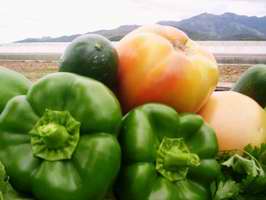U.S. food sales to Cuba in steep decline
- Submitted by: admin
- United States
- Business and Economy
- 07 / 28 / 2010

Tue Jul 27, 2010 2:15pm EDT. HAVANA July 27 (Reuters) - U.S. food sales to Cuba fell by 35 percent from January through May compared with the same period in 2009, as the cash-strapped nation cut imports and bought from countries offering credit, a U.S.-based trade group said on Tuesday.
The steep decline followed a 24-percent drop in sales to the island in 2009 after record sales of $710 million in 2008.
Cuba imports about 60 percent of its food, and the United States has been the island's main provider for years despite political tensions and the almost five-decades-old U.S. trade embargo.
The Caribbean nation is required to purchase agricultural goods with cash under a 2000 exemption to the embargo, but Havana is cash-strapped due to the impact of three hurricanes in 2008, the global financial crisis, lower tourism revenues and declining earnings for nickel and other exports.
U.S. food exports to Cuba through May were $182.3 million compared with $278.2 million during the same period last year, according to figures released by the U.S.-Cuba Trade and Economic Council, a New York-based group monitoring trade between the two countries.
The report said Cuba was turning more to countries such as Brazil, France,Canada, Russia and China where it could purchase food on credit, and to state-run companies from private ones in many countries.
Legislation under consideration in the U.S. Congress would lift restrictions on Americans traveling to Cuba and some regulations on the food sales.
A broad coalition of farm, business and human rights groups have backed the bipartisan bill as an important step toward ending the U.S. embargo and promoting trade and change on the island.
Cuban officials have encouraged visiting U.S. trade delegations to work to abolish the travel ban and lift food sale regulations, arguing that boosting American tourism to the island would give Havana more money to buy U.S. goods.
But John Kavulich, who heads up the U.S.-Cuba Trade and Economic Council, said he doubted improved regulations would increase sales due to Cuba's chronic economic problems.
"Changes to the existing laws and regulations governing United States agricultural products and food products will not result in meaningful increases in exports," he said, while not commenting on the travel ban.
U.S. exports to Cuba include corn, wheat, chicken, soybeans and powdered milk.
The steep decline followed a 24-percent drop in sales to the island in 2009 after record sales of $710 million in 2008.
Cuba imports about 60 percent of its food, and the United States has been the island's main provider for years despite political tensions and the almost five-decades-old U.S. trade embargo.
The Caribbean nation is required to purchase agricultural goods with cash under a 2000 exemption to the embargo, but Havana is cash-strapped due to the impact of three hurricanes in 2008, the global financial crisis, lower tourism revenues and declining earnings for nickel and other exports.
U.S. food exports to Cuba through May were $182.3 million compared with $278.2 million during the same period last year, according to figures released by the U.S.-Cuba Trade and Economic Council, a New York-based group monitoring trade between the two countries.
The report said Cuba was turning more to countries such as Brazil, France,Canada, Russia and China where it could purchase food on credit, and to state-run companies from private ones in many countries.
Legislation under consideration in the U.S. Congress would lift restrictions on Americans traveling to Cuba and some regulations on the food sales.
A broad coalition of farm, business and human rights groups have backed the bipartisan bill as an important step toward ending the U.S. embargo and promoting trade and change on the island.
Cuban officials have encouraged visiting U.S. trade delegations to work to abolish the travel ban and lift food sale regulations, arguing that boosting American tourism to the island would give Havana more money to buy U.S. goods.
But John Kavulich, who heads up the U.S.-Cuba Trade and Economic Council, said he doubted improved regulations would increase sales due to Cuba's chronic economic problems.
"Changes to the existing laws and regulations governing United States agricultural products and food products will not result in meaningful increases in exports," he said, while not commenting on the travel ban.
U.S. exports to Cuba include corn, wheat, chicken, soybeans and powdered milk.
(Reporting by Marc Frank; Editing by Jeff Franks and Paul Simao)
source: Reuters
Comments